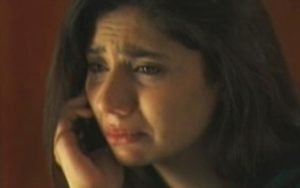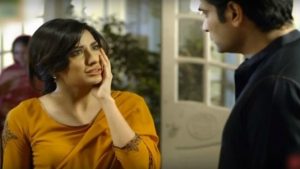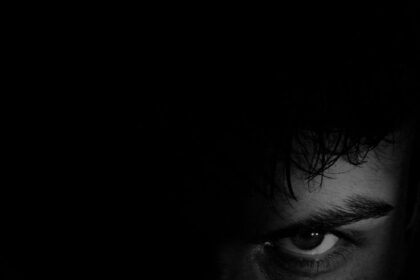There has been a rise in the number of dramas in Pakistan featuring an unorthodox male lead, who exhibits unconventional characteristics, including violence, abuse, domination, playboy conduct, and a privileged lifestyle characterized by riches and good looks. Despite this complete discrepancy, women are portrayed as timid, meek, and naïve individuals who obligingly put up with men’s destructive conduct. The drama industry needs to focus on the plot, storylines, values, character traits, standards, and ideas they promote in society.
Women’s Roles in Pakistani Dramas
Mahnoor Baloch voiced her displeasure with the roles given to and written for women her age. She remarked, “Unfortunately, our profession is still in its infancy, and some roles are geared toward women, with similar roles being portrayed and age restrictions for them.” The Pakistani media enterprises only concentrate on love stories, using performers who are significantly older than their roles, in contrast to the global media industry, which creates stories about various topics and individuals of diverse ages. Baloch emphasized, among other things, the disparate criteria for what makes a hero and heroine in television romances. Despite his advanced age of 55, the hero will not appear aged. However, a woman of her age would be cast as the hero’s mother. She stated that people’s perspectives are shifting, and they no longer tolerate this, adding that the sector needs to start adjusting to this new way of thinking.
Male-Dominated Stereotypes
An iterative, never-ending pattern has been used in Pakistan’s drama industry to depict a stereotypical male-dominated society in which men alone hold absolute power, and women face a variety of forms of discrimination, oppression, and maltreatment, including abuse, blackmail, and sexual violence committed against them by men.
Gender Representation in Dramas
Nowadays, men and women are viewed as two wheels on a single wagon. However, women’s representations are never equal. Men are seen as domineering, while women are constantly attacked. The most significant topic the dramas emphasize is the rise in divorce proceedings, which shows how people are swiftly divorced even when they haven’t done anything wrong. Having a daughter is viewed as a sin, even though women are making more significant progress in society today. They are divorced because they are held responsible for having a daughter. The rights of women are entirely disregarded in dramas; for instance, when they express a wish for a romantic marriage, it is viewed as immoral.
Masculine Bias and Women’s Roles

The portrayal of female characters supports masculine bias and displays views that support the repression of women. The female characters in Pakistani TV shows are shaped by the male gaze in terms of looks, employment, conduct, and personal characteristics. Male bias is exemplified by the female characters’ reliance on male characters, the normalization of honor-based and intimate partner violence against women, the normalization of coercive marriage, the domestication of women’s duties, and the lack of a trial for males who do wrong. While males portray personalities that reinforce their intellectual superiority and domination, women honor patriarchal ideologies through their alluring attractiveness, dependency, and submission. The majority of Pakistani authors are women, yet their portrayals of women in TV shows are outdated and sexist, which is depressing. A woman’s identity is only displayed by her family.
The Savior Complex
The idea that the male character would ultimately rescue the female protagonist’s life has become a common trope in Pakistani drama shows. The man is the one who will stop at nothing to save her, which perpetuates the notion that men must always know the answer to problems and that women must constantly wait for a man to come to their rescue. This savior complex thinking is equally harmful to both men and women. Men are shown as being unreasonably powerful, altruistic, and protective. A softer aspect of masculinity has begun to be shown in Pakistani shows in recent years. Characters like Danish from Meri Pass Tum Ho have shown that males are not inherently weak; they may be emotional, sensitive, and vulnerable. Writing about a sensitive guy has the drawback of invariably depicting the female equivalent as crafty and malevolent.
Gender Pay Gap in Pakistani Dramas

In Pakistan, male and female co-stars are paid differently. However, there are differing views on the magnitude of this pay gap and the opposing forces. Pakistan lacks a formal salary reporting system, so its artists provide only anecdotal evidence. This is in contrast to Bollywood, where Indian media regularly reports on the salaries of Deepika and Kareena versus Akshay and Ranbir, and Hollywood, which produces an annual Forbes list of the highest-paid actors and actresses. Actress Hina Bayat claims that because women are not the family’s primary breadwinners, they are often paid less and given the impression that they don’t need the money. In her financial negotiations, Bayat quickly declines opportunities if she believes the pay is unreasonable. Humayun Saeed claims that gender is not the only element that affects an artist’s pay. According to Saeed, who cites his seniority in the business for his superstar female colleague’s lower pay, pay depends on one’s worth at the box office. Nevertheless, he also claimed to have taken home the most significant salary from Bin Roye, including the incredibly affluent Mahira Khan.
The Need for Change in Pakistani Dramas
At this juncture, the Pakistani drama industry must decide whether to adopt a more inclusive and modern stance or to continue with antiquated clichés. Despite the progress women have achieved in society, current narratives frequently marginalize women, promote toxic masculinity, and uphold patriarchal standards. In addition to distorting reality, this uneven representation impedes society’s advancement by normalizing inequity. The industry can effect real change by refocusing on varied and powerful narratives that honor the diversity of both men and women. Only by questioning these long-standing conventions can Pakistani dramas accurately depict and motivate a society with more equity.
















